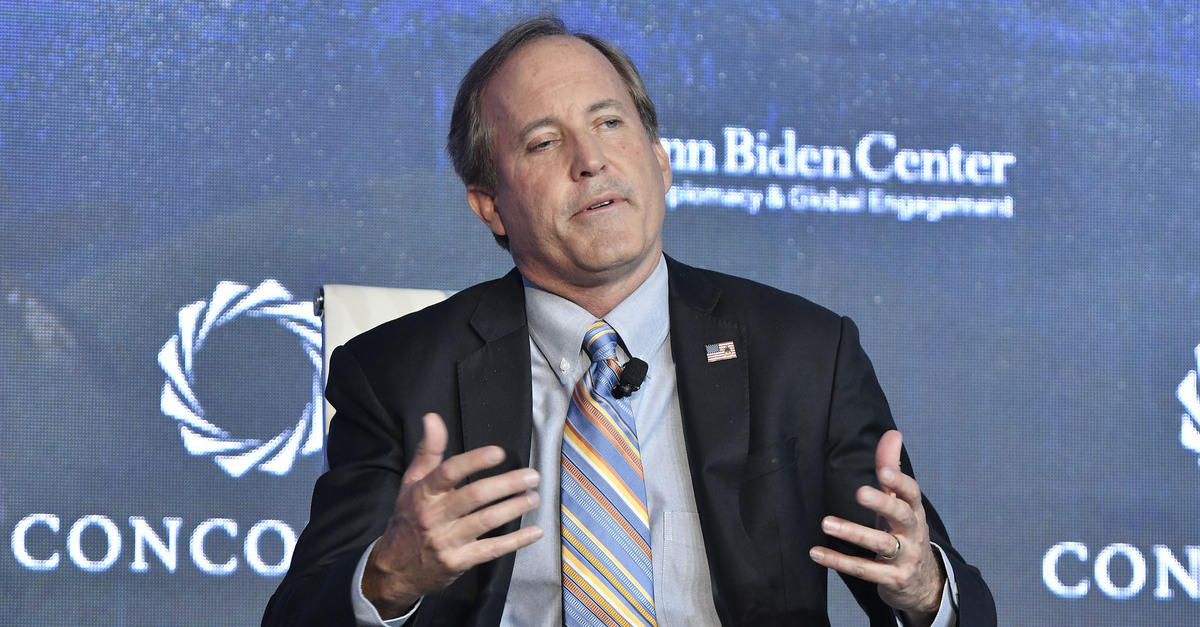
Texas Attorney General Ken Paxton
Pro-choice advocates notched a major victory against an abortion ban recently put into place by the Republican leadership of the Lone Star State due to alleged concerns over the novel Coronavirus (COVID-19) pandemic.
Last Monday, Texas Governor Greg Abbott issued an executive order putting a halt to “all surgeries and procedures that—as determined by a patient’s physician—are not immediately medically necessary to correct a serious medical condition of, or to preserve the life of, a patient who without immediate receipt of such care would be at risk for serious adverse medical consequences or death.”
The next day, however, Texas Attorney General Ken Paxton put out a press release taking things a step further. The press release was summed up by its title: “Health Care Professionals and Facilities, Including Abortion Providers, Must Immediately Stop All Medically Unnecessary Surgeries and Procedures to Preserve Resources to Fight COVID-19 Pandemic.”
“We must work together as Texans to stop the spread of COVID-19 and ensure that our health care professionals and facilities have all the resources they need to fight the virus at this time,” Paxton said. “No one is exempt from the governor’s executive order on medically unnecessary surgeries and procedures, including abortion providers. Those who violate the governor’s order will be met with the full force of the law.”
Litigation was quickly filed by Planned Parenthood and a broad coalition of women’s rights advocates, medical professionals and abortion rights advocates. Law&Crime columnist and legal analyst Elura Nanos explored the lawsuit and Texas’s rationale for restricting elective abortions in an earlier piece here.
The U.S. District Court for the Western District of Texas easily found in favor of the plaintiffs by saying that the Texas Coronavirus-influenced abortion ban violated the 14th Amendment Due Process right to an abortion.
“Specifically, the court finds that Plaintiffs have established a substantial likelihood of success on the merits of their claim that the Executive Order, as interpreted by the attorney general, violates Plaintiffs’ patients’ Fourteenth Amendment rights, which derive from the Bill of Rights, by effectively banning all abortions before viability,” Judge Lee Yeakel noted. “The Due Process Clause of the Fourteenth Amendment to the United States Constitution protects a woman’s right to choose abortion and before fetal viability outside the womb, a state has no interest sufficient to justify an outright ban on abortions.”
The decision said clearly that Paxton’s wager was unconstitutional:
Under the attorney general’s interpretation, the Executive Order either bans all non-emergency abortions in Texas or bans all non-emergency abortions in Texas starting at 10 weeks of pregnancy, and even earlier among patients for whom medication abortion is not appropriate. Either interpretation amounts to a previability ban which contravenes Supreme Court precedent…Previability abortion bans are “unconstitutional under Supreme Court precedent without resort to the undue burden balancing test.” States “may regulate abortion procedures prior to viability so long as they do not impose an undue burden on the woman’s right, but they may not ban abortions.”
Judge Yeakel conceded that Abbott’s own estimation of the public health crisis facing Texas at present is accurate but that Paxton’s clarifying press release went a step too far.
“The State Defendants well describe the emergency facing this country at the present time,” Yeakel continues. “They do not overstate when they say, ‘Texas faces it worst public health emergency in over a century.’ The Executive Order, as written, does not exceed the governor’s power to deal with the emergency. But the attorney general’s interpretation of that order constitutes the threat of criminal penalties against those whose interpretation differs.”
The court also issued a pronouncement in favor of stare decisis:
Regarding a woman’s right to a pre-fetal-viability abortion, the Supreme Court has spoken clearly. There can be no outright ban on such a procedure. This court will not speculate on whether the Supreme Court included a silent “except-in-a-national-emergency clause” in its previous writings on the issue. Only the Supreme Court may restrict the breadth of its rulings. The court will not predict what the Supreme Court will do if this case reaches that Court. For now, the State Defendants, and perhaps the others, agree that the Executive Order bans all pre-fetal-viability abortions. This is inconsistent with Supreme Court precedent.
Read the full order granting an injunction below.
Planned Parenthood v. Abbott by Law&Crime on Scribd
[image via Gabriel Aponte/Getty Images for Concordia Summit]
Have a tip we should know? [email protected]